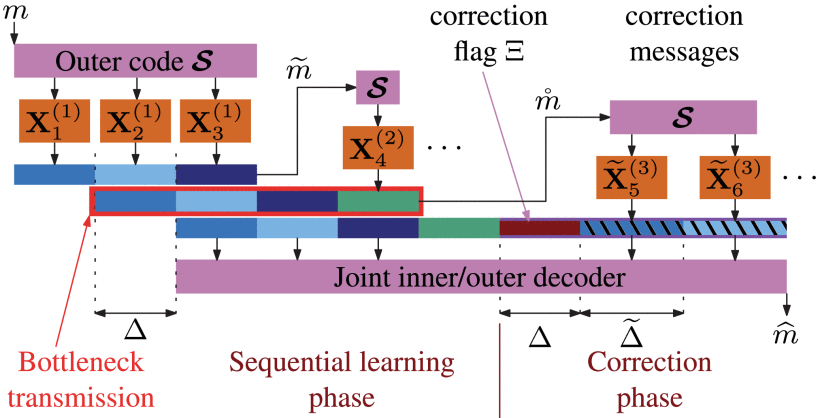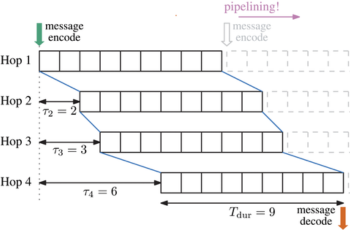Abstract:
Multi-hop line networks have emerged as an important abstract model for modern and increasingly dense communication networks. In addition, the growth of real-time and mission-critical services has created high demand for and increased research interest in low-latency communications. The combination of these facts motivates a new investigation of data transmission schemes for L -hop line networks from a delay-vs-throughput perspective. To this end, this work defines a metric called the delay amplification factor for a target throughput R , denoted by DAF(R) , which characterizes the growth rate of the (asymptotic) delay with respect to the number of hops. We show that all existing relay schemes, e.g., Decode-&-Forward (DF), have limR↗CDAF(R)=Ω(L) , which is consistent with the decades-old perception that delay grows linearly with respect to L . We then design a scheme satisfying limR↗CDAF(R)=1 , if the bottleneck hop is the last hop, i.e., its asymptotic delay does not grow with respect to L . The results imply that this linearly growing delay is an artifact of the existing DF designs, and it is possible to surpass it and attain the true fundamental limit with a new delay-centric solution. In the second half of this work, we further show that if variable-length coding and one-bit stop-feedback are allowed, we can relax the condition bottleneck being the last hop and attain limR↗CDAF(R)=1 for any arbitrary line networks.

Published in: IEEE Transactions on Information Theory ( Volume: 69, Issue: 10, October 2023)


